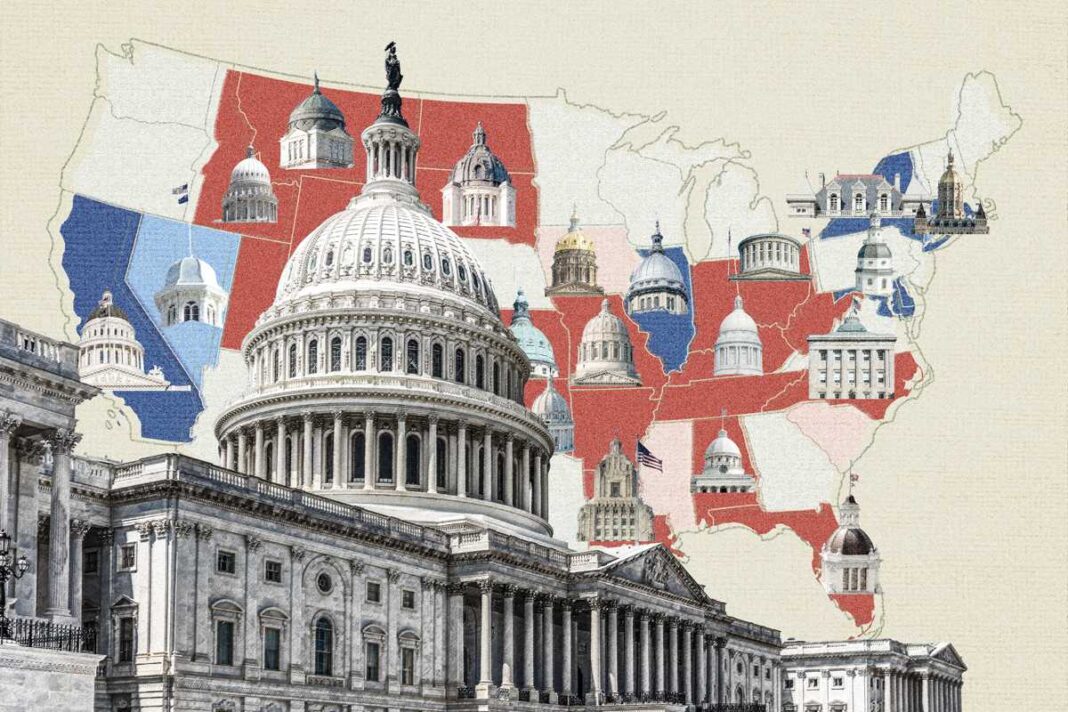More than ever, state Legislatures dominated by a single party are making laws without the need for cooperation from dissenting legislators or governors.
While Congress stagnates, America’s state houses are drafting and passing policies affecting millions. Now, more than ever, those legislative bodies operate without input from an opposition party or dissenting governor.
As of Oct. 21, there are 23 Republican trifectas, 17 Democratic trifectas, and 10 divided governments where neither party holds trifecta control, according to Ballotpedia. A trifecta means one party holds the state governorship and a majority in the state house and senate.
Heading into November’s general election, legislative supermajorities exist in 57 of the 99 legislative chambers in the union, according to data compiled by state and local government consultancy Stateside.
Republicans hold 41 of those veto-proof advantages, while Democrats own 20. All told, there is a partisan supermajority in at least one house of the Legislature in 35 of the 50 states.
However, in 14 of those states, the supermajority is held by an advantage of three seats or less. Michael Behm, Stateside’s co-CEO and principal, told The Epoch Times that organizations aligned with the Democratic and Republican parties are spending heavily on down-ballot races that could make or break a supermajority in the coming legislative term.
Even though voter interest is low in statehouse races compared with high-profile campaigns for national offices, Behm and others who spoke with The Epoch Times said the stakes are high. Most of the legislative actions that affect the public, such as policy on abortions, education, energy, health care, taxes, and transportation, come from decisions made in statehouses.
“With the federal government being so polarized and hamstrung these days, the action is at the state level,” Behm said.
Supermajorities
The definition of a supermajority varies from state to state. Generally, attaining a supermajority means a state legislative body has enough members from one party to pass laws without any votes from the minority party and enough votes to override the governor’s vetoes.









